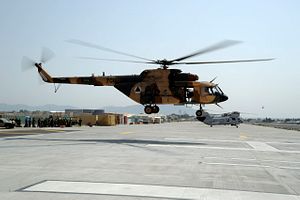The Islamic State of Iraq and Syria (ISIS, also known as the Islamic State, and Daesh) claimed responsibility for a major suicide bomb attack, which took place on Saturday and killed 35 people and injured over 100 others, in Jalalabad, Afghanistan. Shahidullah Shahid, ISIS’ alleged spokesperson in the region, claimed responsibility for the attack, according to Afghanistan’s Pajhwok News.
The Afghan and Pakistani Taliban claimed no responsibility for the attacks, and some affiliated groups, including Jamaat-ul-Ahrar outright condemned the suicide attack.
The target of the attack were Afghan government and military staff who were, according to the Independent, “waiting outside a bank to collect their monthly salaries.”
Afghan President Ashraf Ghani condemned the attack as a “cowardly and heinous” attack. Ghani further accused the ISIS terrorists of escalating a proxy war on Afghan soil. Vowing to retaliate against ISIS in Afghanistan, Ghani noted that “this nation does not bow to threats and dangers … [Afghanistan] will fight them to the end.”
The attack, if confirmed to have been orchestrated by the Islamic State, would mark the first major escalation of the group’s ability to inflict real damage in Afghanistan. Additionally, the attack would represent the group’s farthest-ever attack from its controlled territory in northern Iraq and eastern Syria. Reports last week, by Tolo News and others, alleged that militants waving the ISIS flag were involved in a major skirmish between militants and Afghan security forces in the northern province of Badakhshan.
Late last year, ISIS declared that it would formally expand into the Afghanistan-Pakistan region, potentially posing a challenge to the Taliban’s appeal to younger militants who remain ideologically malleable. The group declared the formation of a Khorasan Shura in January 2015: a leadership council comprising several former leaders of the Tehreek-e-Taliban Pakistan (TTP). Still, until this weekend’s attack in Jalalabad, the group had managed to do little else than spread its rhetoric in the region.
It remains unclear the extent to which the Taliban and ISIS are cooperating. Taliban militants swear allegiance to Mullah Omar, the group’s reclusive leader who is regarded as the Amir al-Mu’minin (Leader of the Faithful). Though some Taliban fighters have declared their allegiance to Abu Bakr al-Baghdadi, ISIS’ leader and self-declared caliph, the group by no means is in a monolithic partnership with ISIS.
In a particularly strong statement, Pakistan’s Jamaat-ul-Ahrar, a group affiliated with the Taliban, noted that the “people who carried out this act have nothing to do with Islam and Muslims. Bombing at public places is a conspiracy to defame the mujahideen. We consider bleeding of any Muslim unjustified.” (The group had previously declared its support for ISIS, and despite its statement, has engaged in suicide attacks in public places, including the deadly suicide bombing at Wagah, which killed 60, on the India-Pakistan border.)
Jalalabad is host to a U.S. military base at the city’s airport that Ghani and Obama determined would remain open and fully operational through the end of 2015, during the Afghan president’s visit to the United States. U.S. forces continue to train Afghan National Security Forces in counter-insurgency warfare at the Jalalabad base.

































